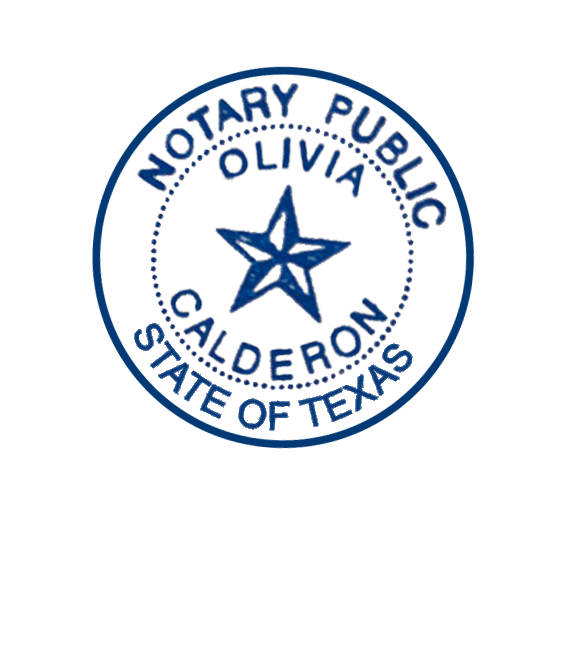

As a Mobile Notary Public and Certified Loan Signing Agent, I provide notary and loan signing services at the location of your choice, at your convenience.
Documents Notarized



$1.00 Each notice of protest
$4.00 Protesting in all other cases
$4.00 Certificate and seal to a protest
$6.00 (1) for the first signature
$1.00 (2) for each additional signature
$6.00 Administering an oath or affirmation with certificate and seal$6.00 All certificates under seal not otherwise provided for
$.50 Copies of all records and papers in the Notary Public's office, for each page
$.50 Taking the depositions of witnesses, for each 100 words
$6.00 Swearing a witness to a deposition, certificate, seal, and other business connected with taking the deposition
$6.00 All notarial acts not provided for
Traveling Fees ApplyA Notary Public is an official of integrity appointed by state government —typically by the secretary of state— to serve the public as an impartial witness in performing a variety of official fraud-deterrent acts related to the signing of important documents. Mainly:
• Authenticates the signing of important documents and
• Administers oaths
If you need an official witness, then you need one.
Everybody at some point on their lives will have the need to have a document “notarized” and notarizations are performed by a Notary Public.
What is notarization?Notarization is the official fraud-deterrent process that assures the parties of a transaction that a document is authentic, and can be trusted. It is a three-part process, performed by a Notary Public, that includes of vetting, certifying and record-keeping. Notarizations are sometimes referred to as "notarial acts." Above all, notarization is the assurance by a duly appointed and impartial Notary Public that a document is authentic, that its signature is genuine, and that its signer acted without duress or intimidation, and intended the terms of the document to be in full force and effect. The central value of notarization lies in the Notary’s impartial screening of a signer for identity, willingness and awareness. This screening detects and deters document fraud, and helps protect the personal rights and property of private citizens from forgers, identity thieves and exploiters of the vulnerable. Every day the process of notarization prevents countless forged, coerced and incompetent signings that would otherwise overwhelm our court system and dissolve the network of trust allowing our civil society to function.
Why does a document need to be notarized?To increase public trust and deter fraud in a world where dealings with strangers is the norm.
The Notary ensures that people signing the documents are:
• Properly identified, so they are who they say they are,
• Willingly doing the agreement and,
• Knowingly what are they doing.
May provide clerical, secretarial or translating assistance with Immigration forms as long as no advise or interpretation is given.
May any document be notarized?A document can be notarized if it has the following:
• Language that commits the signer in some way.
• An original signature to be placed by the signer
A notarial certificate which may appear on the documents itself or as an attachment
In Latin-American countries to be a Notario Publico, a person has to be a Lawyer first, here in the United States a Notary Public IS NOT an attorney, and that is the reason why translation is not appropriate. The Notary Public in the United States cannot give legal advice, prepare legal documents or give advice on immigration documents.
How does a notary public identify a signer in texas?Generally, a Notary will ask to see a current ID that has a photo, physical description and signature. Acceptable IDs usually include a driver’s license or passport.
Accepted identifications in Texas